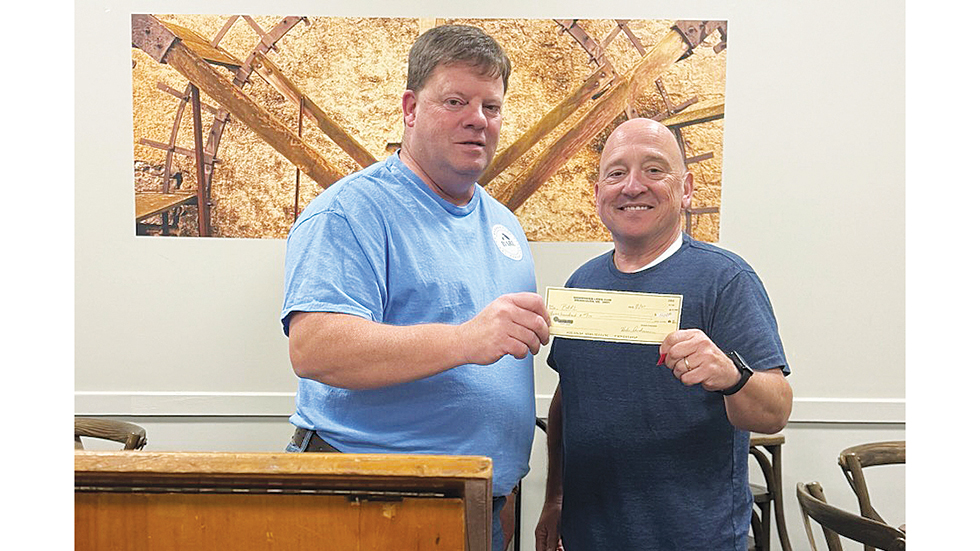Supreme Court finally brought online sales, use tax law fairness to Main Street America
Published 8:41 pm Wednesday, June 27, 2018
In a 5-4 decision that strangely crossed traditional judicial ideological lines, the Supreme Court last week brought online sales and use tax law fairness to mom-and-pop merchants on Main Street who had long been at a seven percent price disadvantage in Mississippi in competition with out-of-state online retailers.
Was this ruling a liberal versus conservative situation? Hardly. The new ruling was written by Justice Anthony Kennedy and overturned the 1992 Quill decision by the court that declared states could only collect sales taxes from companies that had a physical presence in their states.
Kennedy was a member of the court in 1992 and concurred with the Quill decision back then. So did conservative Justice Clarence Thomas. Both Kennedy and Thomas voted for Wayfair, joined by conservative Justices Alito, Gorsuch, and liberal Justice Ruth Bader Ginsberg.
Trending
The new ruling came in the South Dakota v. Wayfair case in which the majority of the court ruled that online retailers must collect state taxes regardless of whether the retailer has a physical presence or “nexus” in the state – meaning that small retailers get a modicum of tax fairness again giant online retailers competing with them for the same customers.
Let’s say a small, family owned hardware store in Pontotoc sells a customer from Algoma a hammer for $8. Mississippi law requires that the store collect seven percent sales tax on the sale of that hammer or 56 cents. Under state law, the seller must then remit the 56 cents to the State Department of Revenue.
Prior to the June 21 high ruling, an online retailer in Kentucky could sell our friend in Algoma the same hammer for $8, but was not required to charge the customer any Mississippi sales tax. Small Mississippi retailers have been whipsawed by that disparity and it is part and parcel of the trend of small businesses closing because of online competition — which erodes jobs and the rest of the state’s tax base as a consequence.
In the Wayfair ruling, the court’s majority ruled that: “Quill put local businesses and many interstate businesses with physical presence at a competitive disadvantage relative to remote sellers. Remote sellers can avoid the regulatory burdens of tax collection and can offer de facto lower prices caused by the widespread failure of consumers to pay the tax on their own.”
More retail stores closed last year across the U.S. than in any year in the nation’s history. Commercial real estate firm Cushman & Wakefield project that nationally more than 12,000 retailers will close in 2018, up from about 9,000 in 2017. Familiar retailers such as Sears and J.C. Penney have already shuttered stores in Mississippi.
With fewer retail outlets collecting state sales taxes, the reduction likewise accrues to sales tax diversions from the state to local governments. The numbers belie significant impact in Mississippi as in the rest of the country.
Trending
In Fiscal Years 2016 and 2017, sales tax collections accounted for 38 percent of the state’s General Fund receipts as the State Department of Revenue collected $2.062 billion in sales taxes in FY 2016 and $2.055 billion in 2017. Twenty years ago, that General Fund percentage was 41 percent.
Sales tax is a regressive tax that hits the poor harder than the wealthy. Frankly, in 1932, the sales tax was a way to more heavily tax those who did not own property in Mississippi at the time — and the majority of that segment of the population were black citizens. Is it unfair to surmise that the 1932 sales tax in Mississippi was aimed squarely at Mississippi’s poorest citizens, regardless of race? It’s an unavoidable, inescapable conclusion.
That said, every penny of sales tax due should be collected and being wealthy enough to afford a computer and ISP to facilitate shopping online to avoid sales tax should not have been an excuse. The Supreme Court ruling last week estimated that the Quill decision costs states between $8 billion and $33 billion in tax revenues.
How many bridges would Mississippi’s share of that have repaired? How many miles of highway could have been paved?
Finally, let’s avoid the red herrings. The Wayfair ruling is not a tax on the Internet. It’s full collection of a sales/use tax that’s been on the books in Mississippi since 1932. And it’s not an activist court run amok, either. It’s the judicial branch righting a wrong after decades of congressional sloth and inaction on the issue fueled by political self-preservation.
Sid Salter is a syndicated columnist. Contact him at sidsalter@sidsalter.com.





